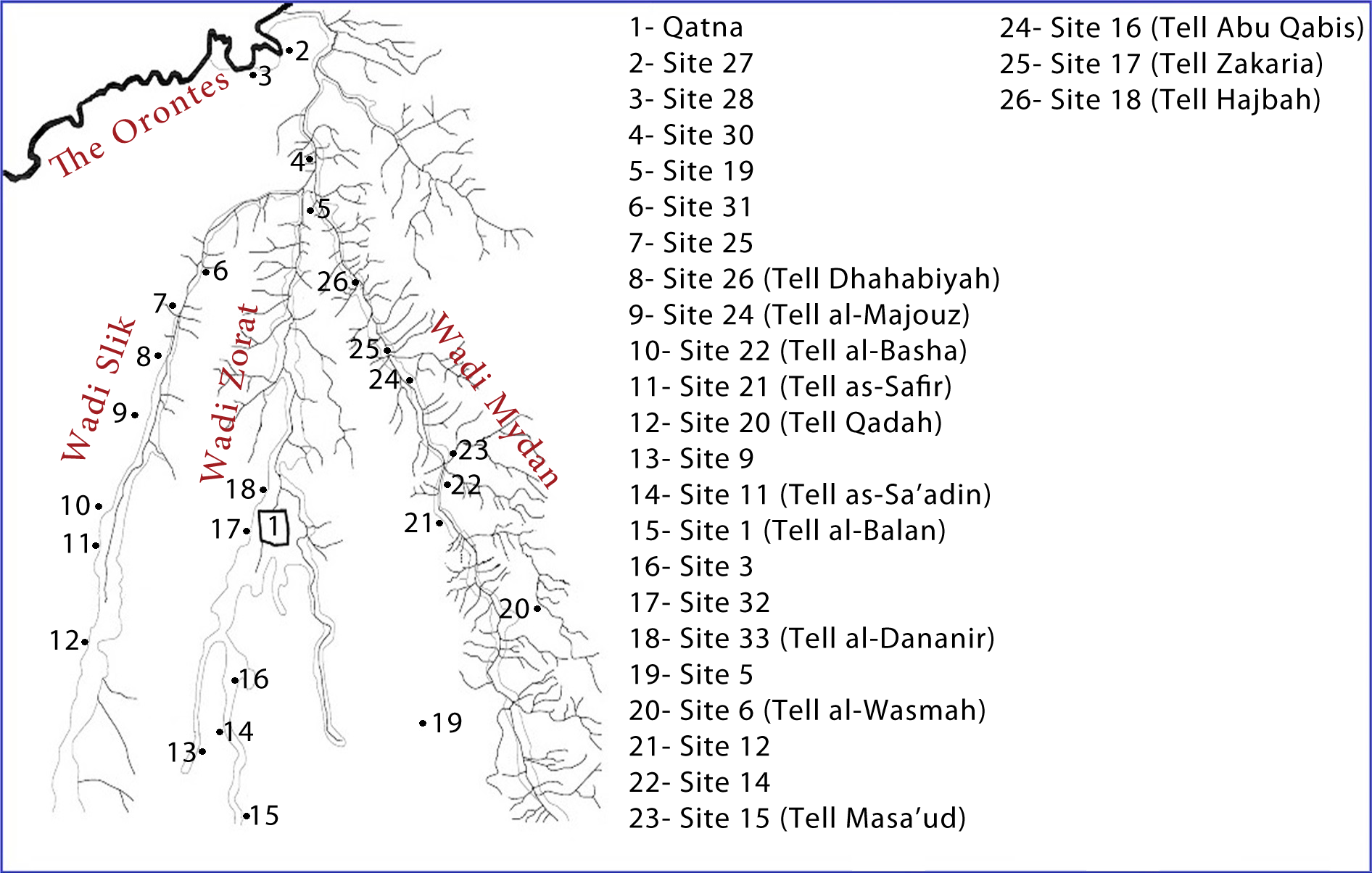|
Idanda
Idanda was a king of Qatna in the middle of the 14th century BC. An archive of tablets discovered in the royal palace mention him with the name Idanda while in other sources he is mentioned as Idadda. His name is Amorite The Amorites (; sux, 𒈥𒌅, MAR.TU; Akkadian: 𒀀𒈬𒊒𒌝 or 𒋾𒀉𒉡𒌝/𒊎 ; he, אֱמוֹרִי, 'Ĕmōrī; grc, Ἀμορραῖοι) were an ancient Northwest Semitic-speaking people from the Levant who also occupied la ..., and he claimed to be the son of a king named Ulašuda whose position in Qatna is uncertain. His son was named Amut-pa-īl. References Citations Sources * * * * 14th-century BC monarchs Amorite kings Qatna {{MEast-royal-stub ... [...More Info...] [...Related Items...] OR: [Wikipedia] [Google] [Baidu] |
Qatna
Qatna (modern: ar, تل المشرفة, Tell al-Mishrifeh) (also Tell Misrife or Tell Mishrifeh) was an ancient city located in Homs Governorate, Syria. Its remains constitute a tell situated about northeast of Homs near the village of al-Mishrifeh. The city was an important center through most of the second millennium BC and in the first half of the first millennium BC. It contained one of the largest royal palaces of Bronze Age Syria and an intact royal tomb that has provided a great amount of archaeological evidence on the funerary habits of that period. First inhabited for a short period in the second half of the fourth millennium BC, it was repopulated around 2800 BC and continued to grow. By 2000 BC, it became the capital of a regional kingdom that spread its authority over large swaths of the central and southern Levant. The kingdom enjoyed good relations with Mari, but was engaged in constant warfare against Yamhad. By the 15th century BC, Qatna lost its hegemony an ... [...More Info...] [...Related Items...] OR: [Wikipedia] [Google] [Baidu] |
Amorite Language
Amorite is an extinct early Semitic language, formerly spoken during the Bronze Age by the Amorite tribes prominent in ancient Near Eastern history. It is known from Ugaritic, classed by some as its westernmost dialect and the only known Amorite dialect preserved in writing, and non- Akkadian proper names recorded by Akkadian scribes during periods of Amorite rule in Babylonia (the end of the 3rd and the beginning of the 2nd millennium BC), notably from Mari and to a lesser extent Alalakh, Tell Harmal and Khafajah. Occasionally, such names are also found in early Egyptian texts; and one placename, "Sənīr" سنير (שְׂנִיר) for Mount Hermon, is known from the Bible (Book of Deuteronomy, ). Amorite is considered an archaic Northwest Semitic language, but there is also some evidence for other groupings. Notable characteristics include the following: * The usual Northwest Semitic imperfective-perfective distinction is found: ''Yantin-Dagan'', 'Dagon gives' (''ntn''); ''R ... [...More Info...] [...Related Items...] OR: [Wikipedia] [Google] [Baidu] |
14th-century BC Monarchs
As a means of recording the passage of time, the 14th century was a century lasting from 1 January 1301 ( MCCCI), to 31 December 1400 ( MCD). It is estimated that the century witnessed the death of more than 45 million lives from political and natural disasters in both Europe and the Mongol Empire. West Africa experienced economic growth and prosperity. In Europe, the Black Death claimed 25 million lives wiping out one third of the European population while the Kingdom of England and the Kingdom of France fought in the protracted Hundred Years' War after the death of Charles IV, King of France led to a claim to the French throne by Edward III, King of England. This period is considered the height of chivalry and marks the beginning of strong separate identities for both England and France as well as the foundation of the Italian Renaissance and Ottoman Empire. In Asia, Tamerlane (Timur), established the Timurid Empire, history's third largest empire to have been ever esta ... [...More Info...] [...Related Items...] OR: [Wikipedia] [Google] [Baidu] |
Amorite Kings
The Amorites (; sux, 𒈥𒌅, MAR.TU; Akkadian: 𒀀𒈬𒊒𒌝 or 𒋾𒀉𒉡𒌝/𒊎 ; he, אֱמוֹרִי, 'Ĕmōrī; grc, Ἀμορραῖοι) were an ancient Northwest Semitic-speaking people from the Levant who also occupied large parts of southern Mesopotamia from the 21st century BC to the end of the 17th century BC, where they established several prominent city-states in existing locations, such as Isin, Larsa and later notably Babylon, which was raised from a small town to an independent state and a major city. The term in Akkadian and Sumerian texts refers to the Amorites, their principal deity and an Amorite kingdom. The Amorites are also mentioned in the Bible as inhabitants of Canaan both before and after the conquest of the land under Joshua. Origin In the earliest Sumerian sources concerning the Amorites, beginning about 2400 BC, the land of the Amorites ("the ''Mar.tu'' land") is associated not with Mesopotamia but with the lands to the west o ... [...More Info...] [...Related Items...] OR: [Wikipedia] [Google] [Baidu] |


